Intro
Explore pregnancy trimesters by week, including early symptoms, fetal development, and pregnancy stages, to understand the 1st, 2nd, and 3rd trimester milestones and prenatal care.
Pregnancy is a complex and fascinating process that involves numerous physical and emotional changes for the expecting mother. The journey to motherhood is typically divided into three distinct periods, known as trimesters, each lasting approximately 13 weeks. Understanding the different stages of pregnancy is essential for expectant mothers, as it helps them prepare for the challenges and milestones that lie ahead. In this article, we will delve into the world of pregnancy trimesters, exploring the physical and emotional changes that occur during each stage, and providing valuable insights and tips for a healthy and happy pregnancy.
As the pregnancy progresses, the fetus grows and develops at an incredible rate, and the mother's body undergoes significant changes to support this growth. From the initial symptoms of pregnancy to the final stages of preparation for motherhood, each trimester brings its unique set of experiences and challenges. Whether you are a first-time mother or have experienced pregnancy before, understanding the different stages of pregnancy can help you navigate this life-changing journey with confidence and enthusiasm.
The concept of pregnancy trimesters is not just a useful tool for dividing the pregnancy into manageable stages, but it also reflects the distinct physical and emotional changes that occur during each period. From the morning sickness and fatigue of the first trimester to the excitement and anticipation of the third trimester, each stage of pregnancy has its unique characteristics and challenges. By understanding these changes and being prepared for what lies ahead, expectant mothers can ensure a healthy and happy pregnancy, and a smooth transition into motherhood.
Pregnancy Trimesters Overview
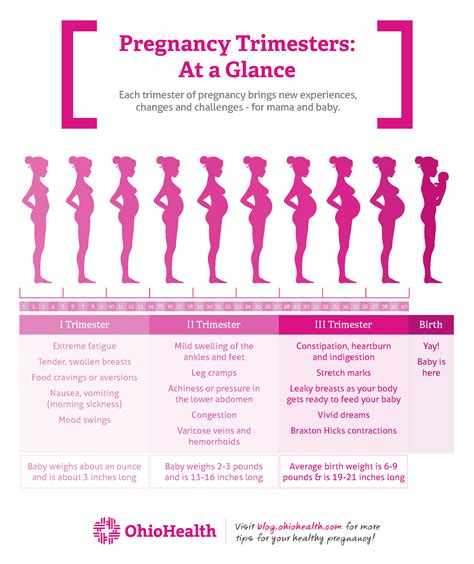
The three trimesters of pregnancy are typically divided as follows: the first trimester, which spans from week 1 to week 12; the second trimester, which lasts from week 13 to week 26; and the third trimester, which covers the period from week 27 to week 40. Each trimester is characterized by distinct physical and emotional changes, and understanding these changes is essential for expectant mothers. In the following sections, we will explore each trimester in detail, discussing the physical and emotional changes that occur during each stage, and providing valuable tips and insights for a healthy and happy pregnancy.
First Trimester (Week 1-12)
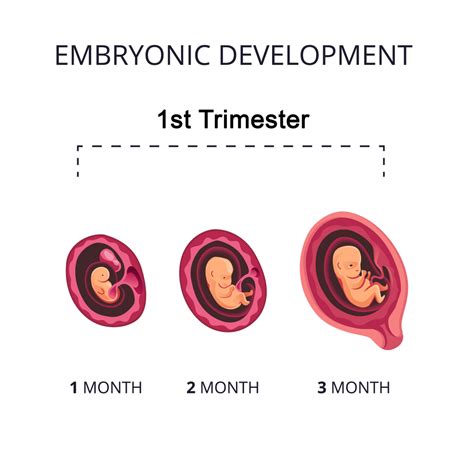
The first trimester is a critical period of pregnancy, during which the fetus undergoes rapid growth and development. This stage is also marked by significant physical and emotional changes for the mother, including morning sickness, fatigue, and mood swings. As the pregnancy progresses, the mother's body begins to undergo changes to support the growing fetus, including an increase in blood volume and changes to the digestive system. Understanding these changes and being prepared for the challenges of the first trimester can help expectant mothers navigate this stage with confidence and enthusiasm.
Physical Changes During the First Trimester
Some of the common physical changes that occur during the first trimester include: * Morning sickness and nausea * Fatigue and sleepiness * Breast tenderness and swelling * Frequent urination * Mood swings and emotional changes These physical changes can be challenging, but they are a normal part of the pregnancy journey. By understanding what to expect and being prepared for these changes, expectant mothers can minimize their impact and ensure a healthy and happy pregnancy.Second Trimester (Week 13-26)
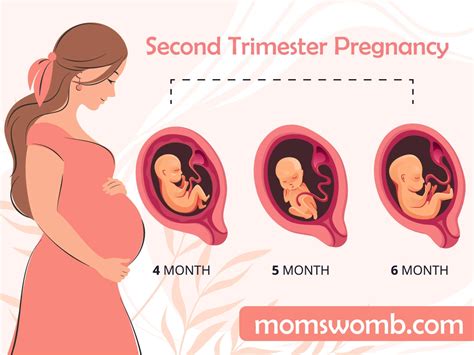
The second trimester is often referred to as the "golden period" of pregnancy, as the morning sickness and fatigue of the first trimester begin to subside, and the mother starts to feel more energetic and confident. This stage is also marked by significant physical changes, including the growth of the fetus and the expansion of the mother's uterus. As the pregnancy progresses, the mother's body continues to undergo changes to support the growing fetus, including an increase in blood volume and changes to the digestive system.
Physical Changes During the Second Trimester
Some of the common physical changes that occur during the second trimester include: * The growth of the fetus and the expansion of the mother's uterus * An increase in blood volume and changes to the digestive system * Back pain and pelvic pressure * Braxton Hicks contractions * Skin changes, including stretch marks and pigmentation These physical changes can be challenging, but they are a normal part of the pregnancy journey. By understanding what to expect and being prepared for these changes, expectant mothers can minimize their impact and ensure a healthy and happy pregnancy.Third Trimester (Week 27-40)
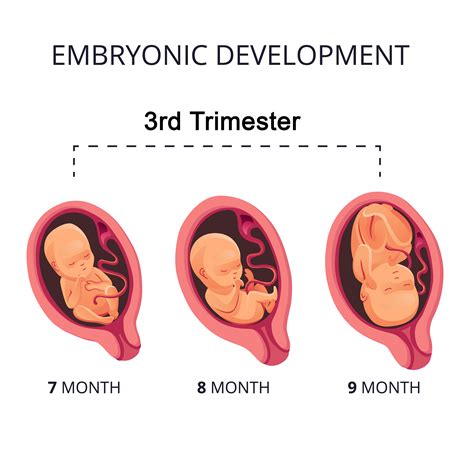
The third trimester is the final stage of pregnancy, during which the fetus continues to grow and develop, and the mother's body prepares for childbirth. This stage is marked by significant physical and emotional changes, including back pain, pelvic pressure, and anxiety about the upcoming birth. As the pregnancy progresses, the mother's body continues to undergo changes to support the growing fetus, including an increase in blood volume and changes to the digestive system.
Physical Changes During the Third Trimester
Some of the common physical changes that occur during the third trimester include: * Back pain and pelvic pressure * Braxton Hicks contractions * Skin changes, including stretch marks and pigmentation * Fatigue and sleepiness * Anxiety and emotional changes These physical changes can be challenging, but they are a normal part of the pregnancy journey. By understanding what to expect and being prepared for these changes, expectant mothers can minimize their impact and ensure a healthy and happy pregnancy.Pregnancy Trimesters by Week
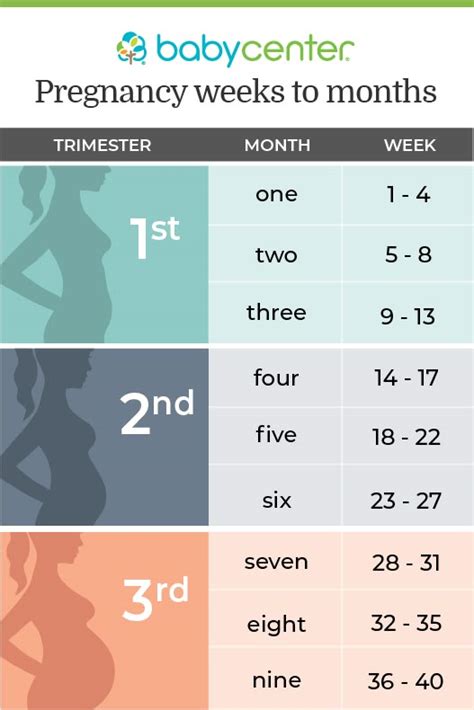
Understanding the different stages of pregnancy can help expectant mothers navigate this life-changing journey with confidence and enthusiasm. By knowing what to expect and being prepared for the challenges and milestones that lie ahead, expectant mothers can ensure a healthy and happy pregnancy, and a smooth transition into motherhood. In the following sections, we will explore the different stages of pregnancy in more detail, discussing the physical and emotional changes that occur during each stage, and providing valuable tips and insights for a healthy and happy pregnancy.
Week 1-4: The Initial Stages of Pregnancy
The initial stages of pregnancy are marked by significant physical and emotional changes, including morning sickness, fatigue, and mood swings. As the pregnancy progresses, the mother's body begins to undergo changes to support the growing fetus, including an increase in blood volume and changes to the digestive system. Understanding these changes and being prepared for the challenges of the initial stages can help expectant mothers navigate this stage with confidence and enthusiasm.Week 5-8: The Embryonic Development Stage
The embryonic development stage is a critical period of pregnancy, during which the fetus undergoes rapid growth and development. This stage is also marked by significant physical and emotional changes for the mother, including breast tenderness and swelling, frequent urination, and mood swings. As the pregnancy progresses, the mother's body continues to undergo changes to support the growing fetus, including an increase in blood volume and changes to the digestive system.Week 9-12: The Fetal Development Stage
The fetal development stage is a critical period of pregnancy, during which the fetus continues to grow and develop. This stage is also marked by significant physical and emotional changes for the mother, including back pain, pelvic pressure, and anxiety about the upcoming birth. As the pregnancy progresses, the mother's body continues to undergo changes to support the growing fetus, including an increase in blood volume and changes to the digestive system.Pregnancy Trimesters and Fetal Development
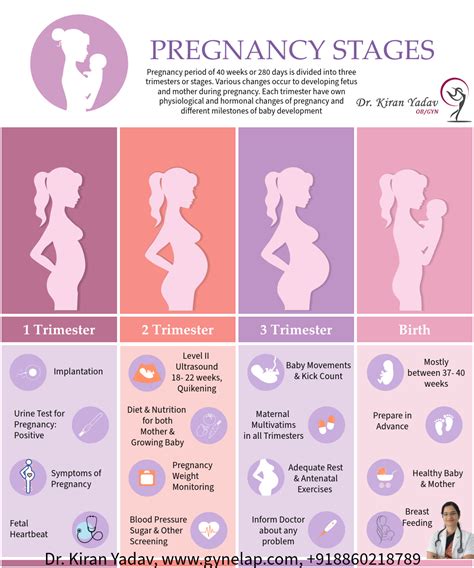
Fetal development is a critical aspect of pregnancy, and understanding the different stages of fetal development can help expectant mothers navigate this life-changing journey with confidence and enthusiasm. By knowing what to expect and being prepared for the challenges and milestones that lie ahead, expectant mothers can ensure a healthy and happy pregnancy, and a smooth transition into motherhood. In the following sections, we will explore the different stages of fetal development, discussing the physical and emotional changes that occur during each stage, and providing valuable tips and insights for a healthy and happy pregnancy.
First Trimester Fetal Development
The first trimester is a critical period of fetal development, during which the fetus undergoes rapid growth and development. This stage is also marked by significant physical and emotional changes for the mother, including morning sickness, fatigue, and mood swings. As the pregnancy progresses, the mother's body begins to undergo changes to support the growing fetus, including an increase in blood volume and changes to the digestive system.Second Trimester Fetal Development
The second trimester is a critical period of fetal development, during which the fetus continues to grow and develop. This stage is also marked by significant physical and emotional changes for the mother, including back pain, pelvic pressure, and anxiety about the upcoming birth. As the pregnancy progresses, the mother's body continues to undergo changes to support the growing fetus, including an increase in blood volume and changes to the digestive system.Third Trimester Fetal Development
The third trimester is the final stage of fetal development, during which the fetus continues to grow and develop, and the mother's body prepares for childbirth. This stage is marked by significant physical and emotional changes, including back pain, pelvic pressure, and anxiety about the upcoming birth. As the pregnancy progresses, the mother's body continues to undergo changes to support the growing fetus, including an increase in blood volume and changes to the digestive system.What are the three trimesters of pregnancy?
+The three trimesters of pregnancy are the first trimester, which spans from week 1 to week 12; the second trimester, which lasts from week 13 to week 26; and the third trimester, which covers the period from week 27 to week 40.
What are the physical changes that occur during the first trimester?
+The physical changes that occur during the first trimester include morning sickness, fatigue, breast tenderness and swelling, frequent urination, and mood swings.
What is the significance of the second trimester?
+The second trimester is often referred to as the "golden period" of pregnancy, as the morning sickness and fatigue of the first trimester begin to subside, and the mother starts to feel more energetic and confident.
What are the physical changes that occur during the third trimester?
+The physical changes that occur during the third trimester include back pain, pelvic pressure, Braxton Hicks contractions, skin changes, and fatigue.
What is the importance of understanding the different stages of pregnancy?
+Understanding the different stages of pregnancy can help expectant mothers navigate this life-changing journey with confidence and enthusiasm, and ensure a healthy and happy pregnancy, and a smooth transition into motherhood.
As we conclude our journey through the world of pregnancy trimesters, we hope that you have gained a deeper understanding of the physical and emotional changes that occur during each stage of pregnancy. By knowing what to expect and being prepared for the challenges and milestones that lie ahead, expectant mothers can ensure a healthy and happy pregnancy, and a smooth transition into motherhood. We invite you to share your thoughts and experiences with us, and to join the conversation about pregnancy and motherhood. Together, we can build a supportive community that empowers expectant mothers to navigate this life-changing journey with confidence and enthusiasm.
